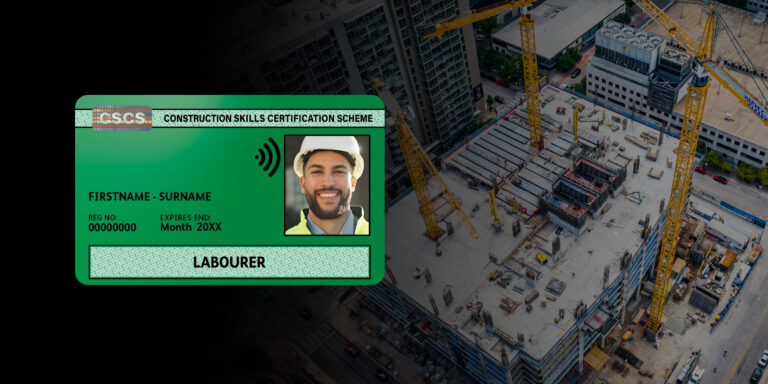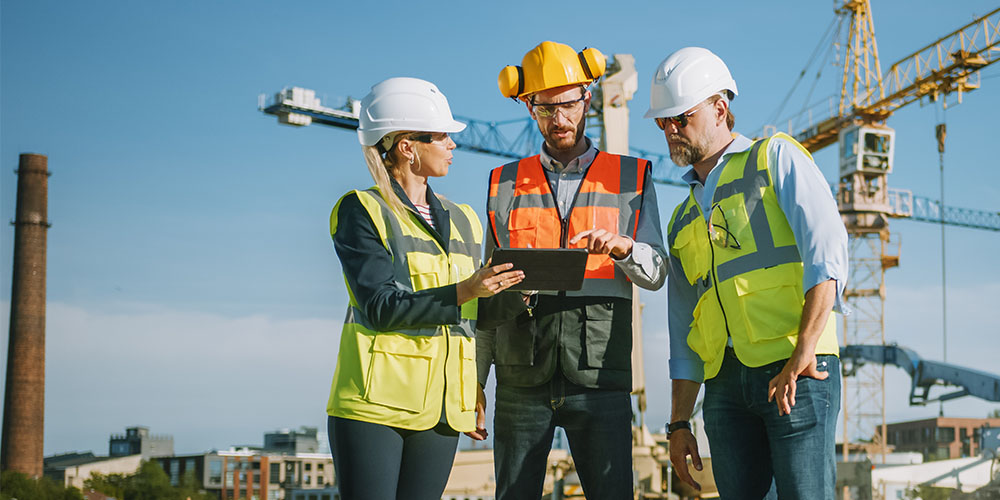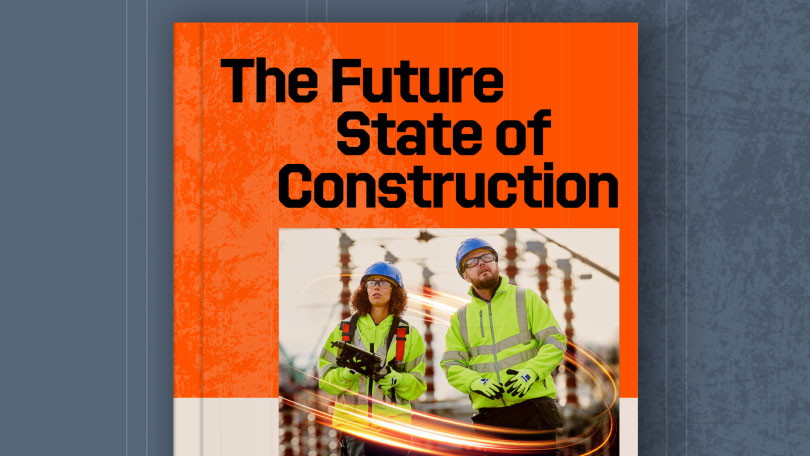— 4 min read
Everything You Need to Know About CSCS Cards

Last Updated Aug 28, 2025

Nicholas Dunbar
Content Manager
65 articles
Nick Dunbar oversees the creation and management of UK and Ireland educational content at Procore. Previously, he worked as a sustainability writer at the Building Research Establishment and served as a sustainability consultant within the built environment sector. Nick holds degrees in industrial sustainability and environmental sciences and lives in Camden, London.
Last Updated Aug 28, 2025

The Construction Skills Certification Scheme plays a key role in upholding safety and competency standards within UK construction. A history of incidents, and consequential legislation has highlighted the need to demonstrate competency in site-based construction roles.
Table of contents
What is a CSCS card? Understanding CSCS cards
Whilst health and safety regulations like CDM 2015 don’t legally mandate CSCS cards, they have become the industry standard for verifying that workers possess the necessary training and qualifications for their roles.
By providing instant verification of safety competancy, the CSCS card confirms that only qualified individuals gain access to construction sites, upholding safety standards across the industry.
Types of CSCS cards
The Construction Skills Certification Scheme offers 13 different card types, each designed for specific roles and qualification levels within the industry. Understanding which card suits your role is important for your construction career, so let's take a closer look:
Green card (Labourer)
- Level 1 Award in Health and Safety in a Construction Environment
- Passed the CITB Health, Safety and Environment test
- Perfect for those starting their construction career
- Valid for five years
Blue card (Skilled worker)
- NVQ/SVQ Level 2 in relevant construction occupation
- Passed the CITB Health, Safety and Environment test
- Demonstrates proven experience in a specific trade
- Valid for five years
Gold card (Advanced craft/Supervisor)
- NVQ/SVQ Level 3 or 4 qualification
- Passed the CITB Health, Safety and Environment test
- Required for supervisory roles
- Valid for five years
Black card (Manager)
- NVQ/SVQ Level 5, 6, or 7 in construction management
- Passed the CITB Health, Safety and Environment test
- Suitable for senior construction professionals
- Valid for five years
Red cards
Red cards serve several temporary purposes, supporting anyone working toward permanent qualifications. These include apprentices, trainees and experienced workers pursuing National Vocational Qualifications (NVQs). The temporary nature of these cards encourages progression and continuous professional development within the industry.
Learn about the future of the built environment - Read Procore's Future State of Construction report
Learn how contractors, subcontractors, and project teams can take advantage of new opportunities to boost efficiency and profitability over the next decade. Download the report to get your roadmap to the future state of construction.

How to get a CSCS Card
Getting a CSCS card involves a structured application process that makes sure all cardholders meet the necessary standards for their role.
The first step is identifying the correct card type based on your current role and qualifications. Your choice should support both your immediate needs and long-term career goals in construction.
The CITB Health, Safety and Environment test (sometimes called the CSCS test) forms a mandatory part of the application process.
It’s a comprehensive assessment that covers:
- General site safety practices
- Environmental awareness and protection
- Personal protective equipment requirements
- Emergency procedures and protocols
- Legal responsibilities on site
You'll also need proof of relevant qualifications, completed training courses and work experience. All documents need to be current and verifiable through recognised awarding bodies.
How much does a CSCS card cost?
Here's a quick cost breakdown for obtaining a CSCS card:
- CSCS card application: £36
- CITB HS&E test: £22.50
- Addiotional costs may include:
Maintaining and renewing your card
Most CSCS cards are valid for five years, but maintaining your qualification status requires ongoing attention. Keep track of your card's expiry date and start the renewal process well in advance. This involves retaking the CITB test and making sure your qualifications remain current.
The renewal process typically includes:
- Checking qualification requirements
- Booking and passing a new CITB test
- Submitting renewal application
- Paying the renewal fee
- Updating digital credentials
Regular updates to industry standards and safety regulations mean renewal requirements may change over time. Therefore, staying informed about these changes is essential for a smooth renewal process. You can stay apprised of all the latest updates through industry publications and official CSCS communications.
Professional development and progression
Your CSCS card is testament to your professional growth in construction. Many workers advance through various card levels as they gain experience and qualifications, marking their career progression.
Construction employers increasingly value CSCS cards as they signify a worker's commitment to maintaining high safety standards and up-to-date skills. The CSCS scheme requires workers to pass regular assessments and encourages them to pursue further qualifications aligned with industry standards.
By prioritising CSCS cardholders, employers can confidently build a skilled and safety-conscious workforce - reducing accident risks and enhancing overall project quality.
Digital construction certification
As the construction industry evolves, so does the CSCS scheme and its requirements. Digital innovations, changing safety standards and new construction methods all influence how competency is certified and verified. The integration of technology and traditional skills verification creates a robust system for validating worker competency.
Industry developments that may affect CSCS certification include:
- Enhanced digital verification systems
- International recognition and compatibility
Supporting industry standards
The CSCS scheme is central to upholding high standards across the UK construction industry. CSCS cards are essential for encouraging safety and efficiency on job sites, benefiting anyone who sets foot on a construction site.
By understanding and maintaining your CSCS certification, you meet industry requirements and demonstrate a commitment to professional growth and safety excellence. Legislation, such as the Building Safety Act, further reinforces these standards, contributing to fewer construction-related incidents.
Categories:
Written by

Nicholas Dunbar
Content Manager | Procore
65 articles
Nick Dunbar oversees the creation and management of UK and Ireland educational content at Procore. Previously, he worked as a sustainability writer at the Building Research Establishment and served as a sustainability consultant within the built environment sector. Nick holds degrees in industrial sustainability and environmental sciences and lives in Camden, London.
View profileExplore more helpful resources

Integrated Compliance: A Main Contractor’s Guide to ISO 9001, 14001, 45001, and 44001
For UK main contractors, ISO 9001, 14001, and 45001 are fundamental prerequisites to any tendering activity. The Building Safety Act, Net Zero targets, and tight margins mean these certifications are...

The Main Contractor’s Action Plan for Commercial Risk
For UK main contractors, managing risk protects project margins, rather than solely acting as a compliance exercise. Construction is an industry defined by thin profits and high liability, and a...

Construction Action Plans: Minimising Risk & Maximising Delivery
A construction project is a complex set of tasks, resources, and stakeholders. Without a clear, documented path forward, even meticulous planning can lead to delays, cost overruns, and disputes. The...

Construction Drawings: Guide to Types & Regulations
While architects, urban planners and landscape designers first conceive buildings and public realms in their minds, translating vision into detailed drawings remains the foundation for any project. Construction drawings translate...
